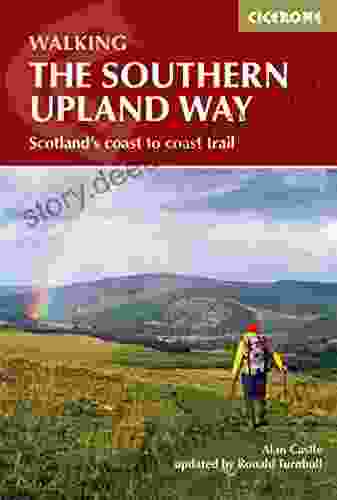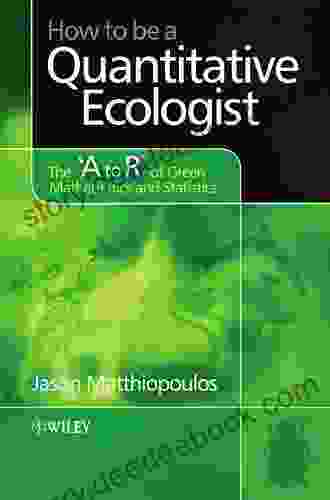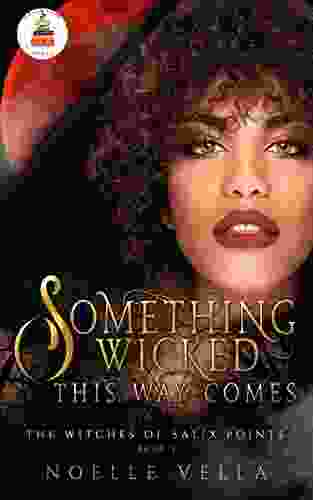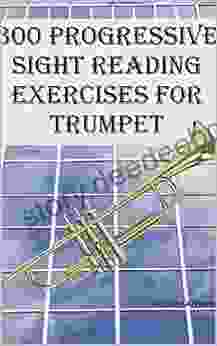How to Be a Quantitative Ecologist: A Comprehensive Guide

Quantitative ecology is a rapidly growing field that uses mathematical and statistical methods to study the dynamics of ecological systems. Quantitative ecologists use a variety of techniques to collect and analyze data on populations, communities, and ecosystems, and they use this data to develop models that can predict how these systems will respond to changes in the environment.
4.8 out of 5
| Language | : | English |
| File size | : | 19929 KB |
| Text-to-Speech | : | Enabled |
| Screen Reader | : | Supported |
| Enhanced typesetting | : | Enabled |
| Print length | : | 492 pages |
| Lending | : | Enabled |
Quantitative ecology is a challenging but rewarding field that offers a unique perspective on the natural world. If you are interested in a career in ecology, and you have a strong foundation in mathematics and statistics, then quantitative ecology may be the perfect field for you.
History of Quantitative Ecology
Quantitative ecology has its roots in the early 19th century, when scientists began to use mathematical models to study the growth of populations. In the early 20th century, quantitative ecology was further developed by scientists who used statistical methods to analyze data on ecological communities. Today, quantitative ecology is a well-established field that is used to study a wide range of ecological topics, including population dynamics, community ecology, and ecosystem ecology.
Methods of Quantitative Ecology
Quantitative ecologists use a variety of methods to collect and analyze data on ecological systems. These methods include:
* Field experiments: Field experiments are controlled experiments that are conducted in the natural environment. They are used to test hypotheses about the effects of different environmental factors on ecological systems. * Observational studies: Observational studies are studies that collect data on ecological systems without manipulating the environment. They are used to describe the patterns and processes that occur in natural ecosystems. * Mathematical modeling: Mathematical modeling is the use of mathematical equations to represent ecological systems. Models can be used to predict the behavior of ecological systems under different conditions, and they can be used to test hypotheses about the mechanisms that drive ecological processes. * Statistical analysis: Statistical analysis is the use of statistical methods to analyze data on ecological systems. Statistical methods can be used to test hypotheses about the relationships between different ecological variables, and they can be used to estimate the parameters of ecological models.
Applications of Quantitative Ecology
Quantitative ecology is used to study a wide range of ecological topics, including:
* Population dynamics: Quantitative ecologists study the dynamics of populations, including their growth rates, carrying capacities, and age structures. * Community ecology: Quantitative ecologists study the interactions between different species in communities, including competition, predation, and mutualism. * Ecosystem ecology: Quantitative ecologists study the functioning of ecosystems, including the cycling of nutrients, the flow of energy, and the effects of human activities.
Quantitative ecology is used to inform a wide range of conservation and management decisions, including:
* The management of endangered species * The design of protected areas * The regulation of pollution * The mitigation of climate change
How to Become a Quantitative Ecologist
If you are interested in a career in quantitative ecology, then you should start by getting a strong foundation in mathematics and statistics. You should also take courses in ecology and environmental science. Once you have a strong foundation in these subjects, you can pursue a graduate degree in quantitative ecology. There are a number of universities that offer graduate programs in quantitative ecology, and you should research the different programs to find one that is a good fit for your interests.
In addition to your formal education, you can also gain experience in quantitative ecology by volunteering with a local conservation organization or by conducting your own research projects. You can also join a professional organization such as the Ecological Society of America or the Society for Ecological Restoration.
Quantitative ecology is a challenging but rewarding field that offers a unique perspective on the natural world. If you are interested in a career in ecology, and you have a strong foundation in mathematics and statistics, then quantitative ecology may be the perfect field for you.
4.8 out of 5
| Language | : | English |
| File size | : | 19929 KB |
| Text-to-Speech | : | Enabled |
| Screen Reader | : | Supported |
| Enhanced typesetting | : | Enabled |
| Print length | : | 492 pages |
| Lending | : | Enabled |
Do you want to contribute by writing guest posts on this blog?
Please contact us and send us a resume of previous articles that you have written.
 Novel
Novel Page
Page Chapter
Chapter Genre
Genre Library
Library Paperback
Paperback E-book
E-book Sentence
Sentence Bookmark
Bookmark Shelf
Shelf Glossary
Glossary Bibliography
Bibliography Synopsis
Synopsis Footnote
Footnote Manuscript
Manuscript Scroll
Scroll Bestseller
Bestseller Classics
Classics Library card
Library card Memoir
Memoir Reference
Reference Character
Character Catalog
Catalog Borrowing
Borrowing Stacks
Stacks Archives
Archives Periodicals
Periodicals Study
Study Lending
Lending Reserve
Reserve Rare Books
Rare Books Special Collections
Special Collections Interlibrary
Interlibrary Literacy
Literacy Dissertation
Dissertation Storytelling
Storytelling Awards
Awards Reading List
Reading List Theory
Theory Textbooks
Textbooks Joseph Baddick
Joseph Baddick Chris Bryant
Chris Bryant Gregory D Williams
Gregory D Williams Joan West
Joan West G Ra Asim
G Ra Asim Daniel K Longman
Daniel K Longman Faith Hogan
Faith Hogan Claire Pearcy
Claire Pearcy Dr Binayak Sahu
Dr Binayak Sahu Nancy K Stalker
Nancy K Stalker Kate Johnson
Kate Johnson Emma Tennant
Emma Tennant Gary Kurz
Gary Kurz Grace Maddrell
Grace Maddrell Jamie Bastedo
Jamie Bastedo Greg Horine
Greg Horine Lisa Burke
Lisa Burke R L Stine
R L Stine Todd Falcone
Todd Falcone Victoria Tyrsa
Victoria Tyrsa
Light bulbAdvertise smarter! Our strategic ad space ensures maximum exposure. Reserve your spot today!
 Evan HayesFollow ·17.5k
Evan HayesFollow ·17.5k Ben HayesFollow ·15.9k
Ben HayesFollow ·15.9k Miguel NelsonFollow ·19.5k
Miguel NelsonFollow ·19.5k Abe MitchellFollow ·3.9k
Abe MitchellFollow ·3.9k Alex FosterFollow ·13.3k
Alex FosterFollow ·13.3k Junichiro TanizakiFollow ·5.9k
Junichiro TanizakiFollow ·5.9k George Bernard ShawFollow ·14.2k
George Bernard ShawFollow ·14.2k Clarence MitchellFollow ·6.7k
Clarence MitchellFollow ·6.7k

 Matt Reed
Matt ReedTrekking the Breathtaking Scotland Coast to Coast Trail:...
Lace up your...

 Deacon Bell
Deacon BellThe Easy Guide to Playing Piano Scales: Piano Lessons for...
Piano scales...

 Fred Foster
Fred FosterUnveiling the Enthralling Best Friends to Lovers Romance...
Westbury Warriors: Where Love...

 T.S. Eliot
T.S. EliotHow To Dramatically Increase Your Profits And Sales...
Are you looking...

 Aaron Brooks
Aaron BrooksSummer at Stallion Ridge by Delores Fossen: A Thrilling...
Immerse Yourself in the...
4.8 out of 5
| Language | : | English |
| File size | : | 19929 KB |
| Text-to-Speech | : | Enabled |
| Screen Reader | : | Supported |
| Enhanced typesetting | : | Enabled |
| Print length | : | 492 pages |
| Lending | : | Enabled |














